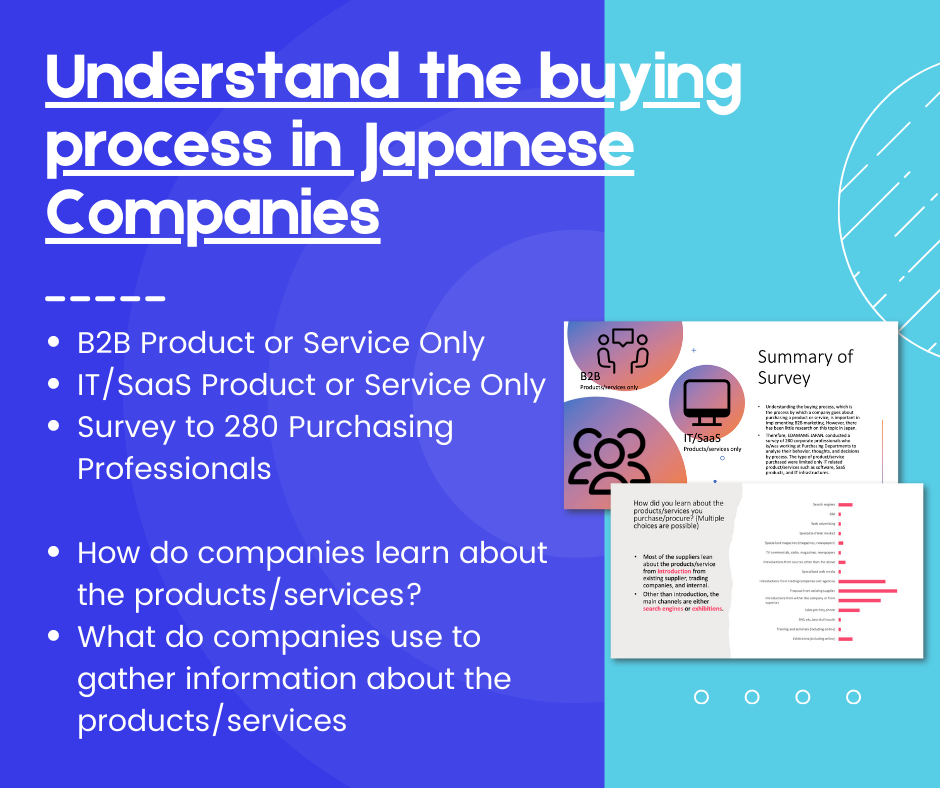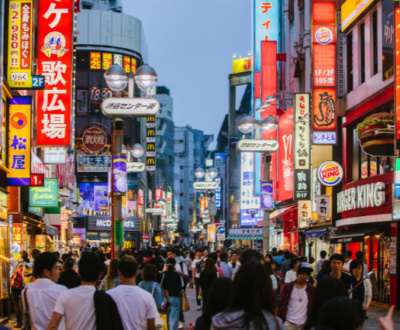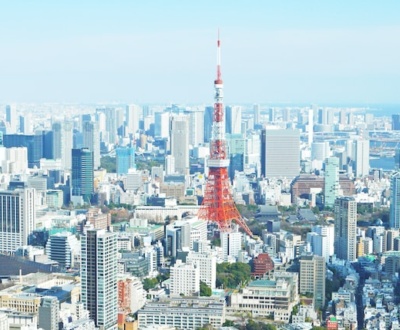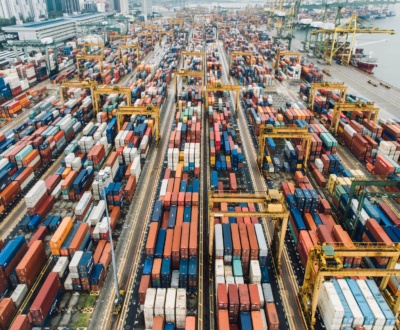What is “Sogo Shosha”? The Unique Japanese Trading Company
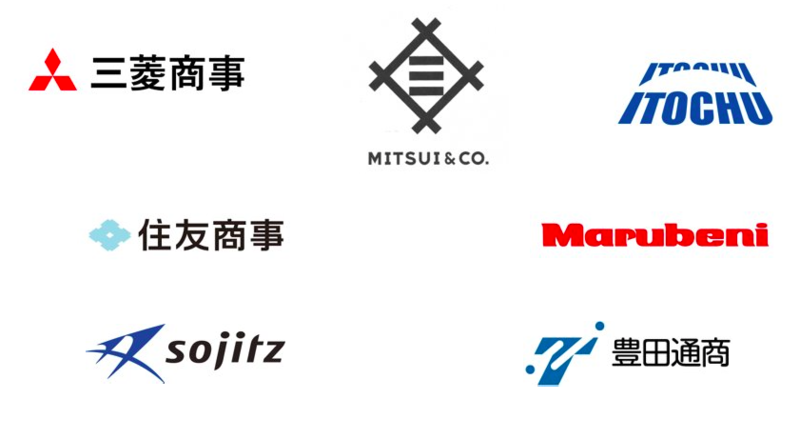
If you are doing some business in Japan, especially in B2B, you may have already heard about “sogo shosha” or “trading company,” companies like Mitsubishi, Mitsui, Itochu, Sumitomo, Marubeni, or Sojitz, and more.
The Sogo Shosha companies are critical for Japanese market entry at some stages. This article goes through explaining these massive companies and their operations in Japan.
What is Sogo Shosha?
Sogo shosha is a unique business category in Japan that existed practically before World War II. They led the Japanese economy during the postwar reconstruction period and the subsequent period of rapid economic growth.
Other than Japan, there is no such business model as Japan’s sogo shosha. Although there are “trading companies,” they are nothing like Japanese trading companies, and their image is very different.
Japan’s seven major sogo shosha, including Mitsubishi Corporation, Mitsui & Co. Shosha are often said to be unique to Japan; in English, they are also known as “sogo shosha” using actual Japanese words.
There are many companies globally, both self-proclaimed and otherwise, that are called “sogo shosha” companies. Most of them are probably wholesalers engaged in BtoB commerce. However, in the narrow sense of the term, the “shosha” refers to wholesalers (trading companies) that engage in trade, that is, international transactions (in fact, an average of about 60% of the transaction value of the shosha is domestic transactions. (In fact, an average of about 60% of the transaction value of the shosha is domestic, although there is also trilateral trade between foreign countries.)
Our recent survey on the B2B business procurement process shows that most procurement channels are based on these sogo shosha’s introduction.
Traders, the prototypes of sogo shosha companies, have existed since the establishment of nations in human history. In medieval Europe, Italian merchants, like Marco Polo, who traveled to China, were active worldwide. Furthermore, the British, who came to control the seven seas, established the East India Company in 1600, a national policy company for trade in the Orient. The company was deeply involved not only in trade but also in colonial development projects (there were also Dutch and French East India Companies).
Other world-famous trading companies include Jardine Matheson, which originated in the U.K. and grew through trade with Asia and was one of the first to enter Japan at the end of the Edo period, and the U.S. company Cargill, a “grain major” that influenced the global food market.
The roots of Japanese Sogo Shosha companies can be traced back to the end of the Edo period. It is said that the origins of trading companies can be traced back to 1865 when Ryoma Sakamoto established Kameyama Shachu (later Kaientai), the first private trading company in Nagasaki.
Historical Impact of Sogo Shosha
Sogo Shosha, or general trading companies, have played a pivotal role in shaping the economic landscape of Japan. Their influence extends far beyond the country’s borders, impacting global trade and business practices. To fully appreciate their significance, it’s essential to delve into their origins and understand their role in Japan’s post-war economic growth.
Origins of Sogo Shosha
The roots of Sogo Shosha can be traced back to the late Edo period, around the mid-19th century. The first private trading company in Nagasaki, Kameyama Shachu (later Kaientai), was established by Ryoma Sakamoto in 1865. This marked the beginning of what would become a unique business model in Japan.
Sogo Shosha evolved from these early trading companies, expanding their operations to include a wide range of commodities and services. Unlike traditional trading companies, Sogo Shosha didn’t limit themselves to specific industries or sectors. Instead, they engaged in diverse business activities, acting as intermediaries in both domestic and international markets.
Role in Japan’s Post-War Economic Growth
The role of Sogo Shosha in Japan’s post-war economic growth cannot be overstated. In the aftermath of World War II, Japan faced the daunting task of rebuilding its economy. Sogo Shosha companies were at the forefront of this effort, leveraging their extensive networks and diverse business operations to stimulate economic activity.
During the post-war reconstruction period and the subsequent period of rapid economic growth, Sogo Shosha led the way in securing essential resources, promoting exports, and facilitating international trade. They played a crucial role in Japan’s industrialization, helping to transform the country into one of the world’s leading economies.
Sogo Shosha companies were instrumental in establishing Japan’s presence in global markets. They acted as intermediaries, connecting Japanese manufacturers with overseas buyers, and vice versa. By doing so, they helped Japanese companies expand their reach, gain access to new markets, and acquire essential resources.
In summary, the historical impact of Sogo Shosha on Japan’s economy is profound. From their origins in the late Edo period to their significant role in post-war economic growth, these unique trading companies have been instrumental in shaping Japan’s economic landscape. Their influence continues to be felt today, as they adapt to changing global economic conditions and continue to play a vital role in Japan’s economy.
Understanding the Two Types of Sogo Shosha in Japan
In the world of Japanese business, Sogo Shosha holds a unique position. These trading companies are not confined to a single industry or sector but instead operate across a wide range of businesses. However, not all Sogo Shosha are the same. They can be broadly categorized into two types: General Trading Companies (総合商社) and Specialized Trading Companies (専門商社).
General Trading Companies
General Trading Companies, or Sogo Shosha (総合商社), are the giants of the Japanese business world. These companies, including well-known names like Mitsubishi Corporation and Mitsui & Co., engage in a vast array of business activities. They handle everything from energy, metals, machinery, textiles, to food, acting as intermediaries between sellers and buyers in both domestic and international markets.
These companies have a global reach, with offices and operations in countries around the world. They leverage their extensive networks and financial resources to facilitate trade, provide value-added services, and invest in promising businesses. Their broad scope of operations allows them to adapt to market changes and seize new business opportunities, making them a driving force in the Japanese economy.
Specialized Trading Companies
On the other hand, Specialized Trading Companies, or Senmon Shosha (専門商社), focus on specific business categories or regions. These companies may specialize in a particular industry, such as food, fashion, or metals, or they may focus on a specific region, like Europe, ASEAN, or the Middle East.
While they may not have the same broad scope as General Trading Companies, Specialized Trading Companies have in-depth knowledge and expertise in their chosen field or region. This allows them to provide specialized services and solutions tailored to their clients’ specific needs. Some Specialized Trading Companies also engage in importing and exporting related to their area of expertise, adding another layer to their business operations.
Why Sogo Shosha is unique?
It is often said that sogo shosha is a unique Japanese business type. In fact, there are sogo shosha in countries such as the U.K. (such as Jardine Matheson, mentioned above) and South Korea. Still, only a few of them boast the scale of operations and various functions of a Japanese sogo shosha.
They deal not only in hardware but also in software. It is also involved in developer businesses such as urban redevelopment and social infrastructure development, IT solution implementation services, and matching businesses such as licensing of fashion brands and commercialization of high-tech patents.
It also has a credit management function and a financial function, utilizing its vast financial resources, and invests in and participates in the management of companies as needed. It is truly a “giant do-it-all store” that does whatever it takes to make money.
In English, a trading company is a “trading company,” but Japan’s sogo shosha, which is no longer a trading company, is called a “sogo shosha” in English.
Two Main Business of Sogo Shosha
Sogo shosha has strengths such as the ability to gather information, abundant financial resources, and a global distribution network. Taking advantage of these strengths, sogo shosha has two primary businesses: “trading” and “business investment.”
Trading business of Sogo Shosha
Trading is the business of handling commercial products such as raw materials, goods, and services and earning commissions by acting as an intermediary between sellers and buyers. They deal in everything from energy, metals, machinery, textiles, and food. Trading companies also provide value-added services such as finance and insurance in trading.
Investment business of Sogo Shosha
Business investment is the business of investing management resources (people, goods, money, and information) in the business of promising companies and earning profits through dividends. In many cases, the company’s own employees are seconded to the business.
Most of the specialized trading companies are mainly engaged in the trading business. Still, in recent years, transactions that do not go through a trading company have become more common, and some specialized trading companies are finding ways to expand their business beyond trading.
Future of Sogo Shosha
As we look to the future, the role of Sogo Shosha in Japan and the global economy is set to evolve. These companies are not only adapting to changes in the global economy but are also leveraging technological advancements and responding to shifts in consumer behavior to stay ahead of the curve.
Adapting to Changes in the Global Economy
The global economy is in a state of constant flux, shaped by factors such as geopolitical shifts, economic policies, and global events. Sogo Shosha, with their vast networks and diverse operations, are well-positioned to adapt to these changes. They can pivot their business strategies, enter new markets, and leverage their financial resources to seize new opportunities.
For instance, as sustainability becomes a critical concern globally, many Sogo Shosha are investing in renewable energy projects, contributing to the global shift towards a more sustainable economy. They are also exploring opportunities in emerging markets, further expanding their global footprint.
A recent example of the global recognition of the value of Sogo Shosha is the investment by Warren Buffett, the chairman and CEO of Berkshire Hathaway. In an interview with CNBC, Buffett revealed that he had raised his stakes in each of the five major Japanese firms to 7.4%, and added that he may consider further investments. Buffett was “confounded” by the opportunity to buy into these companies, citing their earnings yield and the potential for growing dividends. This investment by one of the world’s most successful investors underscores the enduring value and potential of Sogo Shosha in the global economy.
Technological Advancements and Sogo Shosha
Technological advancements are reshaping industries and business practices worldwide, and Sogo Shosha are no exception. These companies are leveraging technology to streamline their operations, improve efficiency, and create new business opportunities.
For example, they are using data analytics to gain insights into market trends, customer behavior, and operational efficiency. They are also exploring technologies like blockchain for secure and transparent transactions, and artificial intelligence for improved decision-making and automation of routine tasks.
Shifts in Consumer Behavior and the Response of Sogo Shosha
Consumer behavior is another area that’s undergoing significant change. As consumers become more informed and conscious about their choices, businesses need to respond accordingly. Sogo Shosha are adapting to these shifts by focusing on consumer needs and preferences in their business strategies.
For instance, in response to the growing demand for sustainable and ethically sourced products, some Sogo Shosha are investing in sustainable supply chains and transparent business practices. They are also focusing on customer-centric strategies, offering products and services that cater to the evolving needs and preferences of consumers.
In conclusion, the future of Sogo Shosha lies in their ability to adapt and innovate. By responding to changes in the global economy, leveraging technological advancements, and adapting to shifts in consumer behavior, these companies are poised to continue playing a significant role in Japan’s economy and the global business landscape.
About us and this blog
We are a digital marketing company with a focus on helping our customers achieve great results across several key areas.

